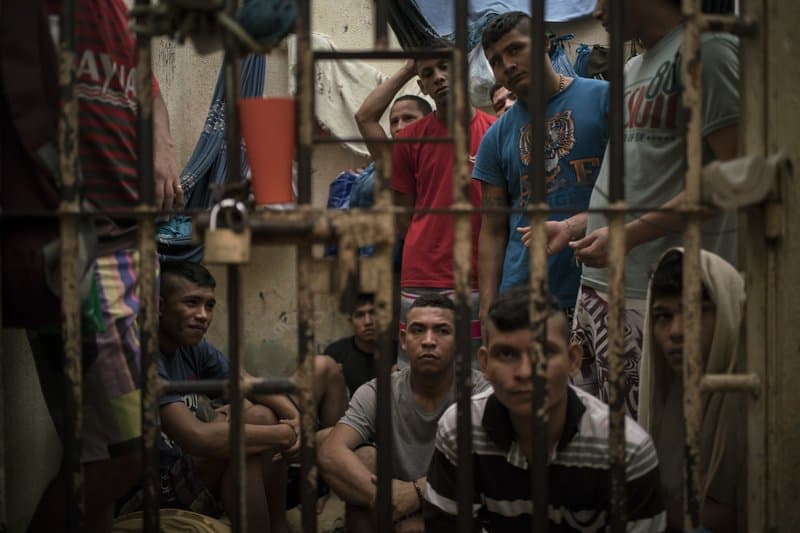SÃO PAULO – A surge in violence – much of it related to drug trafficking – is hitting the border between Brazil and Paraguay.
Within only two weeks in October, at least 15 people were killed in the region of the neighboring cities of Ponta Porã, in Brazil, and Pedro Juan Caballero, in Paraguay.
Since then, the local news websites have been reporting cases of killings almost on a daily basis, a signal that the ongoing war between criminal gangs for the control of the local gun and drug trafficking routes has been getting worse.
Criminal operations on the border are a historic problem. Violence apparently began to grow in 2016 after the killing of Jorge Rafaat Toumani, the region’s alleged drug lord. His assassination was supposedly organized by Primeiro Comando da Capital (Capital’s First Commando), one of the largest mafia-like criminal gangs in Brazil, which is based in São Paulo. Since then, different gangs have been fighting the PCC for control of the region.
The most recent surge of violence began on October 8, when city council member Farid Afif was shot dead as he was riding his bike in Ponta Porã. Only 12 hours later, four people were killed on the Paraguayan side, as they left a nightclub. One of them was the 21-year-old daughter of the governor of Amabai province in Paraguay.
The exact reasons for those deaths – and of the others that have followed – have not been totally understood by the police. Large raids on both sides of the border resulted in the arrest of several suspects connected to local gangs, as well as the confiscation of a large amount of weapons and drugs.
“Unfortunately, violent events that happen on one side of the border end up having side effects on the other,” Marcelino Nunes de Oliveira, Ponta Porã’s city secretary of public security, told Crux.
De Oliveira said that the recent killings have not created an atmosphere of fear in the city, given that such events do not affect the “working people,” only the ones in the “underworld of drugs.”
Nevertheless, many people seem to be afraid to talk about the issue. A Catholic deacon who preferred to remain anonymous told Crux that “the less we talk about it, the longer we live.” He compared the situation on the border with Rio de Janeiro’s Favela do Alemão, a slum ruled by drug traffickers which is notorious in Brazil for its violence.
On both sides of the border, the Church has been trying to help young men to get out of the gangs and remain sober. But that has not been an easy task.
“Many times, the priests just do not know what to do,” Father Teodoro Benites of the nearby city of Maracaju told Crux.
During several years working in Ponta Porã, Benites organized youth groups in an effort to prevent young people from becoming involved in drug trafficking.
“About 10 years ago, I helped to implement in the diocese a movement called Convívio Damasco [Damascus Conviviality], and we were able to rescue many that were going the wrong way,” he said.
Benites also visited the jails regularly and helped many prisoners with a personal approach.
“We had to understand each case and then offer the proper advice. Decisions involved life and death. Many times, we had to recommend to a man that he should leave the region in order to protect his life,” he said.
Benites saw many of his school colleagues getting involved in crime, and most of them ended up in prison or dead.
Father Ronaldo Ocampos, a pastor in Pedro Juan Caballero, said it seems that violence began to grow in the region over the past few years.
“We have been seeing many cases of hitmen killing people. Apparently, the ancient mafia codes are not respected anymore,” he told Crux.
Ocampos said that in the past most of the people killed were members of gangs, “but now many innocent people are dying too.”
He said that both the Paraguayan and the Brazilian police forces have been impotent in combating the criminal gangs, and the civil population is growing more afraid.
“Parents will not let their teenage children going out with their boyfriends or girlfriends, for instance. They prefer dating to occur at home now,” he said.
Many people do not trust the police and are afraid of reporting criminals, Ocampos said. “And some authorities are accomplices of them.”
Over the past seven years, Ocampos’s church has been organizing a pastoral ministry for sobriety, which focus on addiction to alcohol and drugs.
“There are weekly meetings, and people are accompanied by mental health professionals,” he explained.
Ocampos said that addiction is on the rise among teenagers, something that makes their involvement with criminal activities easier.
“When a teenager is addicted to drugs and does not have money to buy them, he or she begins to steal things,” he said.
There is no public rehabilitation center in the region, so addicts many times do not have the means to recover. Ocampos said that the diocese has been discussing the idea of opening one on the border.
“There is a clear perception among the clergy that it is about time to look for alternatives in order to deal with that reality,” he said.














